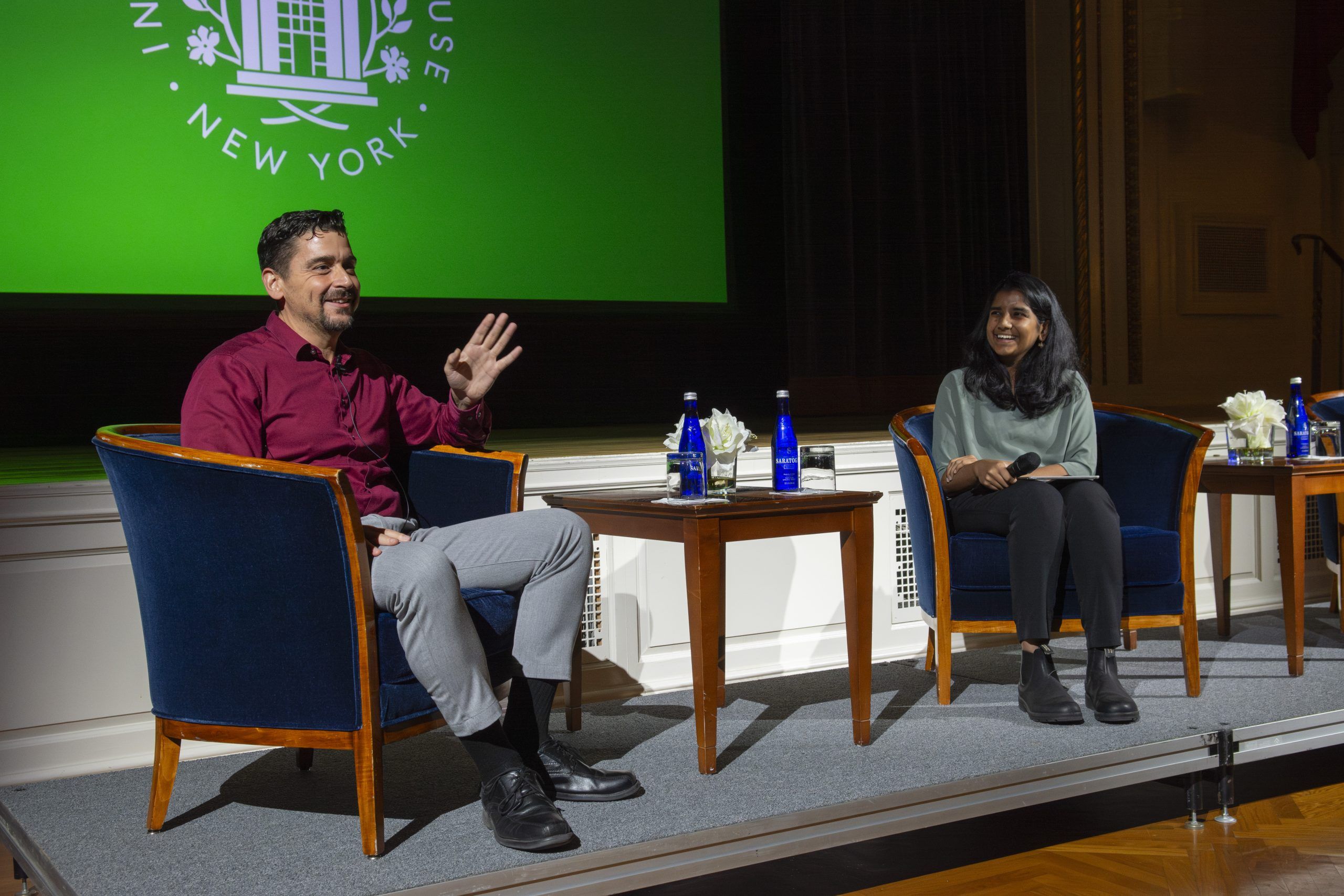
Yanis Ben Amor ’04 Discusses The Coming AI Wave
International House welcomed back alumnus Yanis Ben Amor ’04, Executive Director of the Center for Sustainable Development at Columbia University’s Climate School, for a fireside chat on the challenges and opportunities presented by artificial intelligence on September 30.
Moderated by I-House resident Archana Dhinakar Bala and Columbia University student Yatin Jain, the program drew a lively audience eager to consider how the rise of AI will shape careers, education, and society.
Prof. Ben Amor began by recalling his being unexpectedly—and initially reluctantly—seated across the table from Prof. Jeffrey Sachs, then Director of the Earth Institute at Columbia University, at an I-House dinner following a talk by the economist. The encounter became a lengthy conversation that led to a job offer and his subsequent career.
Reflecting on his journey from I-House resident to global leader in sustainable development, he noted how the diverse environment of the House gave him the perspective to understand new technologies within broader social contexts. He framed AI as a watershed moment on par with the internet revolution, one that will profoundly alter how knowledge is produced, shared, and applied.
The conversation underscored both the promise and the peril of AI adoption. On one hand, large language models and other tools have the potential to accelerate research in fields ranging from climate change to public health, democratizing access to knowledge and empowering new forms of creativity.
On the other hand, Prof. Ben Amor said, AI risks amplifying bias, displacing jobs, and widening global inequalities if access is uneven.
“The challenge is not simply how we use these technologies,” he said, “but how we prepare ourselves to remain human in what we value and contribute.”

Turning to career readiness, he advised I-House residents to cultivate skills that AI cannot easily replace: ethical reasoning, communication, and the capacity to integrate knowledge across disciplines. Rather than specializing narrowly, he emphasized the importance of adaptability, critical thinking, creativity and empathy.
The moderators guided the discussion toward questions of governance and responsibility, probing whether universities, governments, or industry should lead in setting ethical frameworks. Prof. Ben Amor pointed to universities as key actors, tasked with both teaching responsible AI use and preparing graduates for industries in flux.
Questions from I-House residents ranged from how to prevent over-reliance on tools like ChatGPT in education to what measures can ensure marginalized communities benefit from the AI wave rather than fall further behind.
In closing, Prof. Ben Amor returned to the role I-House played in shaping his own worldview and recalled how the community gathered in the Main Lounge, on the evening of September 11, 2001, and two years later on the night of the northeast blackout of 2003, coming together at moments of potential peril.
Just as the House had once prepared him for an interconnected and rapidly changing world, he suggested, it continues to cultivate the adaptability, curiosity, and resilience that young leaders will need to navigate the uncertain terrain of artificial intelligence.
The evening concluded with a reception in the Hall of History.